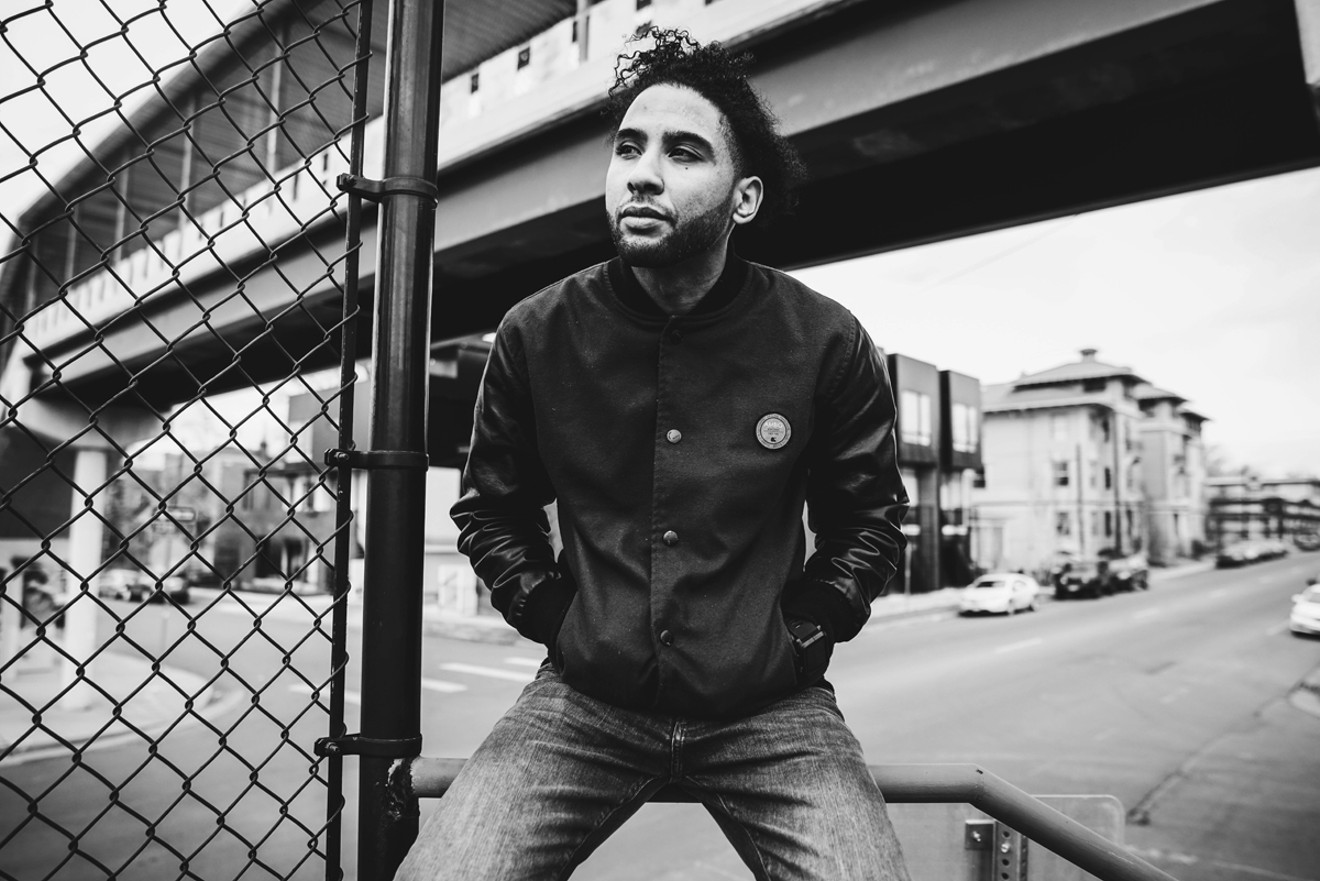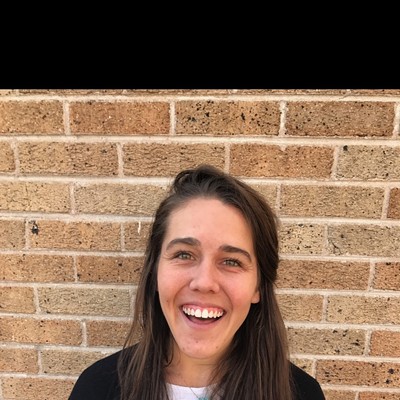Carl Carrell spent his early twenties striving to make hits.
He worked out of a Denver condo that was equipped with a home studio alongside his roommate, who wanted to start a record label. Carrell spent his days mimicking Top 40 songs and pitching what he wrote to national artists. He thought a career in music meant chasing fame and topping Billboard charts. Three years passed, but making music motivated by dollar signs failed to satisfy him.
“We’d wake up in the morning, go to the studio and try to make hits,” Carrell explains. “I got to the point where I hated what I was doing.”
So he moved out and rented a house on South Federal Boulevard, which is when he says everything changed.
Instead of aspiring to be a pop star, he embarked on a more organic approach to his music career: building community.
Carrell had started playing music in his mother’s basement after graduating from high school and abandoning his hoop dreams for a career in music. He bought beat machines and keyboards and began producing from his basement studio, inspired by friends and family involved in the music scene.
Later, still working from that basement, he became one of the few people in Denver producing beats for rappers, offering them a studio to record in.
He eventually traded his mom’s basement for the condo and the roommate. But in 2010, he put pop in the rearview and moved to the house on South Federal. His passion for music was gaining momentum — and this time it was authentic.
He was part of a couple of indie bands — Carl Carrell and the Consequence, then the Ever — and he studied audio production, teaching himself about everything from sound engineering to graphic design to creating visuals for shows. He networked and learned from sound engineers and took online courses in audio production.
“I think with teaching yourself and learning things, a lot of it has to do with fear,” Carrell says. “People are scared to not be good at something or not have the adequate training for something.”
Part of what he taught himself how to do — and now intends to share with others — is how to demystify technology.
“If you walk up to a mixing board and there are 48 faders and all these buttons, you’re scared you’re going to hit the wrong button. But you have to hit the wrong button. The fact that you hit that wrong button — it might show you the button you’re supposed to hit.”
Learning happens when people allow themselves to make mistakes, he says. “You’re going to run into roadblocks where you don’t understand something, but that step might be critical to something that’s going to happen in the future or down the line.”
Three years ago, Carrell convinced his property manager to allow him to renovate an old garage in the back yard into a studio using recycled materials. He now hosts parties, produces tracks for other artists and creates solo work there as CRL CRRLL.
He also rents the studio to other musicians as a rehearsal space for $5 an hour. Knowing what it’s like to find affordable practice space in Denver, Carrell wants to help other artists as much as possible.
He brings this generosity to all facets of his career, helping fellow artists produce sound effects and connecting them with other people in the scene.
“I’ve always had somebody who would do a little bit more than just tell you, ‘Go do this,’” Carrell says. “Instead of saying ‘Go read a book,’ they would say, ‘You should check out this chapter right here and look at this video…and these three guys do what you’re talking about, so go check out their work.’”
He believes that helping others creates mutually beneficial relationships, regardless of how much or how little you are able to assist.
“I feel like you grow up personally when you help people,” Carrell says. “People always ask me all kinds of random shit, and I’ll never turn someone away. If it’s something I really can’t do, I’ll find a way to get them to somebody who can do it.”
While he is squarely lodged in the hip-hop and soul scenes, he always aims to help fellow musicians, regardless of their genre.
“I’ve had super-emo, indie-punk bands hit me up about shows, and I don’t really book for that,” Carrell says, so he hooks them up with the hi-dive or 3 Kings.
“You never know what that band is going to be,” he adds. “They might be the next, dopest indie-punk band you’ve never heard of, and if you could at least help direct them somewhere.... You should always be willing to guide and help people, especially if you’re in a position where you can.”
Carrell was chosen as a Red Bull Sound Select artist in 2014. Since then, he’s had the opportunity to play Sound Select shows in Denver as well as Red Bull-sponsored events across the country. Here, he has met different musicians and been exposed to music outside of what he would typically gravitate toward. He says those connections have a ripple effect, either driving him to produce a song with a new artist he met at an event or booking the artist to play at a party he’s organizing.
Says Carrell: “The more you do, the better off you are — even if it’s just going to a bunch of shows and meeting people.”
Carrell works each day to advance his career; part of that, he says, is throwing and deejaying parties, including Stay Up Saturdays at Pearl’s and LAB Sundays at Meadowlark, both of which take place at the end of every month.
When deciding who to book for these nights, he likes to keep the lineup as local as possible, but he also brings in touring acts. Being a DJ himself, he knows that playing crowds in other cities can be daunting, so he tries to create a relaxed environment for all involved.
“I like bringing in these flavors of music and styles so people can come check it out,” Carrell says. “My party is going to be a party where we’ll play your favorite song at some time throughout the night. You’re going to be dancing, and somehow we’ll play music you really enjoy. I’m [also] going to bring you some different genre or style of music that fits into what we play, but it’s something you wouldn’t typically listen to.”
Carrell acknowledges that with so many DJs and so much music coming from the Denver scene, it can be hard to keep people engaged, so he attempts to produce visuals, decorate venues and even provide themed drinks to separate his events from others around town. For him, making quality music is the easy part; learning to “sell a song as a piece of art — that’s when you have to elevate to the next level.”
His goal: “I want everything I do to be some sort of experience for people. That’s one of the biggest parts of what I do — having people remember how something affects them.”
With so many people moving to Denver, Carrell wants to showcase and promote local talent as much as possible, and he runs his events like he runs his career. His focus is building strong networks and giving more than he takes.
“I never look at it like, ‘Oh, I need to push this because my shit has got to be popping,’” Carrell explains. “This is more like, ‘This is dope, and people should hear about this.’ Usually it’s a positive thing and will have a positive effect. You can tell when people are forcing things that don’t make sense.”
CRL CRRLL at Ultraversary 7
Sunday, April 30, Meadowlark Bar, 2701 Larimer Street, 303-293-0251, eventbrite.com.
[
{
"name": "Air - MediumRectangle - Inline Content - Mobile Display Size",
"component": "12017618",
"insertPoint": "2",
"requiredCountToDisplay": "2"
},{
"name": "Editor Picks",
"component": "17242653",
"insertPoint": "4",
"requiredCountToDisplay": "1"
},{
"name": "Inline Links",
"component": "18838239",
"insertPoint": "8th",
"startingPoint": 8,
"requiredCountToDisplay": "7",
"maxInsertions": 25
},{
"name": "Air - MediumRectangle - Combo - Inline Content",
"component": "17261320",
"insertPoint": "8th",
"startingPoint": 8,
"requiredCountToDisplay": "7",
"maxInsertions": 25
},{
"name": "Inline Links",
"component": "18838239",
"insertPoint": "8th",
"startingPoint": 12,
"requiredCountToDisplay": "11",
"maxInsertions": 25
},{
"name": "Air - Leaderboard Tower - Combo - Inline Content",
"component": "17261321",
"insertPoint": "8th",
"startingPoint": 12,
"requiredCountToDisplay": "11",
"maxInsertions": 25
}
]












